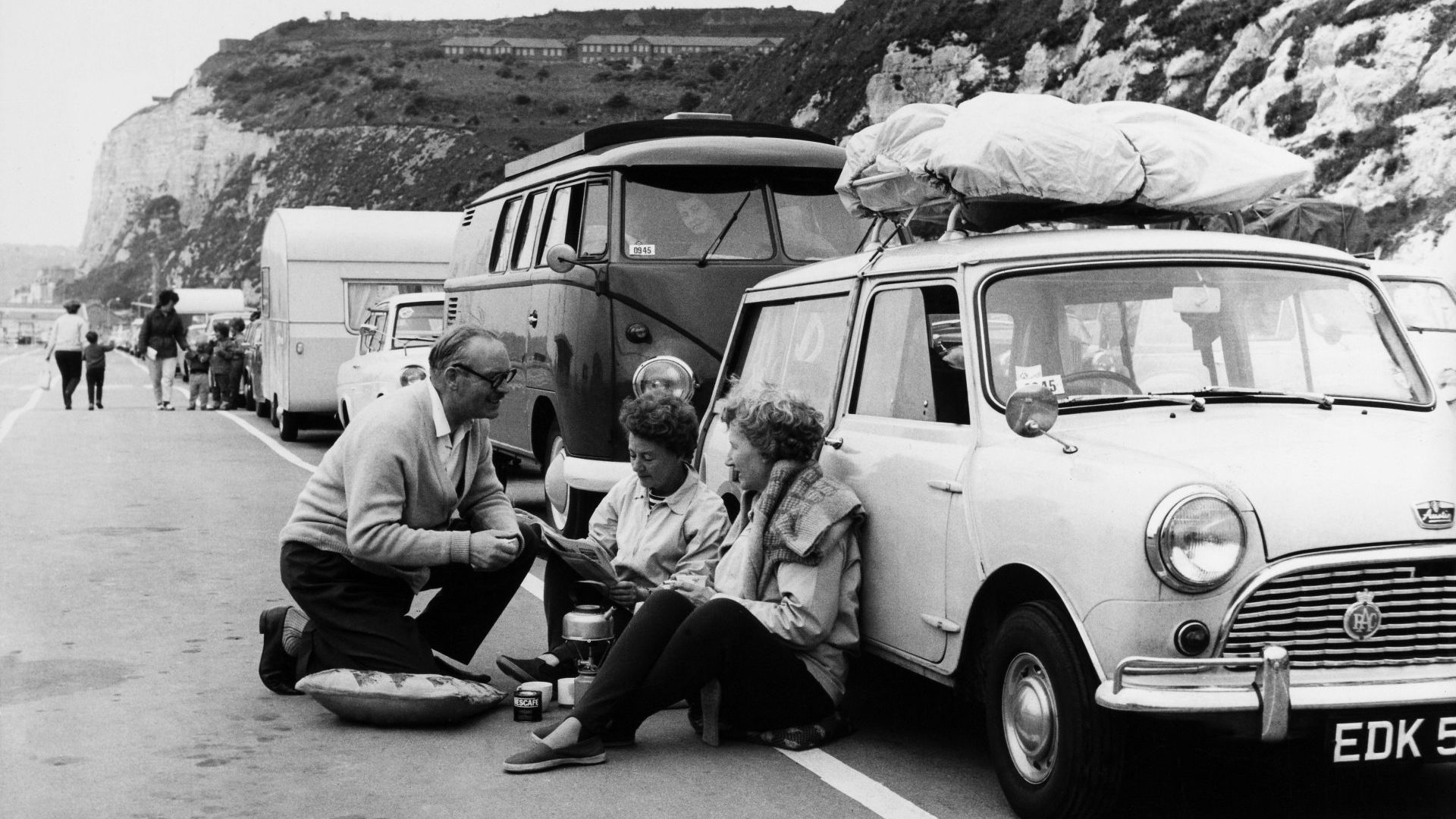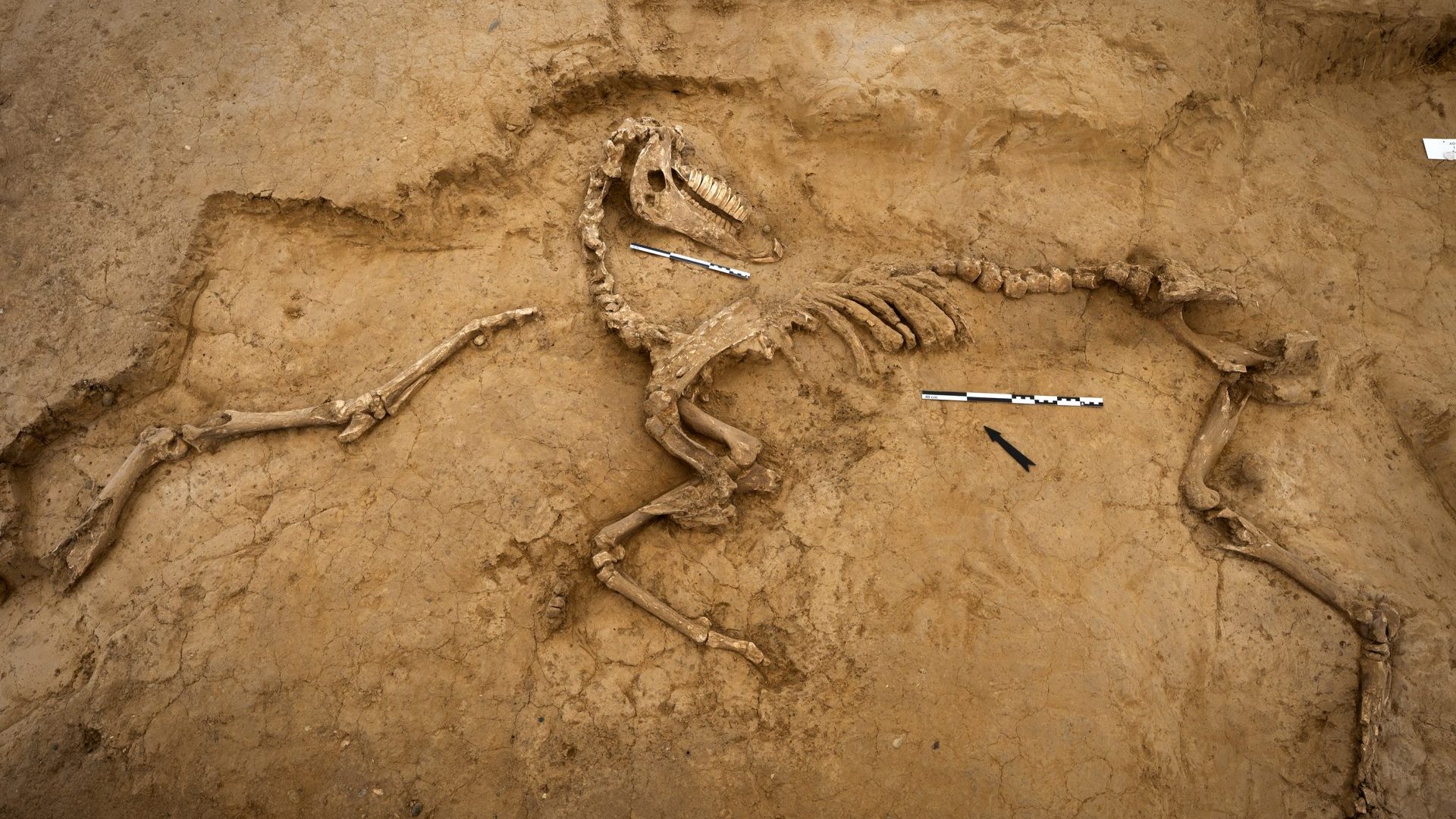When it comes to the chaos at Dover, there’s a simple choice.
You can choose to believe that the whole mess was caused by six French border police officers being 75 minutes late for work. That this was probably a deliberate and spiteful act by a French nation that has never forgiven us for Brexit and/or Agincourt, and all that needs to be done to sort out the queues is for the UK to demand that the French do what they are told.
Or you can look at the evidence.
The French authorities willingly admit there was a delay getting border staff to work, but it is extraordinary that a delay of just 75 minutes could have led to delays of up to six hours and miles of queues. That is because what really caused those delays and will continue to cause long delays at peak periods is that the UK has left the EU and is now a third country.
Having failed in its Brexit negotiations to do anything but ask to be treated as a third country, the UK government is now complaining about it actually happening.
UK citizens are now treated the same way as any other tourist from a country not in the European Economic Area or a country that has negotiated a special deal, like Switzerland. Putting it simply, UK tourists as citizens of the EU used to sail through border control with nothing more than a cursory glance at their passports and a Gallic shrug of the shoulders by the French border police.
Now those same officials, by law, have to check:
• The identity page of the passport, to make sure it is yours
• That you have a return ticket
• That you have enough money to live on during your trip
• That you have travel insurance
• That your passport is in date
• That you haven’t been in the EU for more than 90 days in the last 180 days – because you can no longer go and stay anywhere you want in Europe for as long as you want
• And finally, that they have stamped your passport with a date, so that they can tell how long you have been in the EU, to help with the above.
As Simon Calder, travel editor of the Independent, has been making clear on every TV and radio channel available, “leaving the EU has made leaving the UK more difficult”. Every official might not insist on every check, but all of this takes time. What used to take seconds now takes a minute or so.
Since everyone has known this would happen for the last six years, the obvious solution would have been to build more capacity at Dover for the French to check passports. More lanes, more booths and more staff. Funnily enough, the Port of Dover asked for just this.
But as the Financial Times has reported, the government turned down that request in 2020. The result has been that although the collapse of tourist travel during Covid seems to have hidden the problem, at its first real test, the system failed.
If you are wondering why the Port of Calais has not had similar problems the answer is obvious: it has invested in more capacity and more border police. It also has far more space to build facilities and organise traffic.
For the UK, if nothing changes, there is every reason to believe that this will happen again at the next holiday rush. But the reality is even worse than that; not only will it not get better, it is fated to get much, much worse.
You only have to look at a map to realise that Dover is built at the bottom of a cliff and that there is no space for a large expansion of the border control facilities. The same is true for the Eurotunnel terminal. It was not built with Brexit in mind, nor for that matter was the terminal at St. Pancras station in London. You can stand in the queue there and almost touch the security staff and the French border control booths at the same time – there is no spare room.
There are two main reasons why the problems will get worse. For a start, the UK has yet to introduce all the border controls that it insisted on in the negotiations of the Trade and Cooperation Agreement (TCA).
You might remember that Jacob Rees-Mogg travelled to Dover in April this year when the cost-of-living crisis began and declared that he was delaying the introduction of food testing again, in fact for the fourth time. The minister for Brexit opportunities claimed this would save British firms and therefore consumers £1bn and that introducing them would have been “an act of self-harm”.
So, when they are finally introduced late next year, they will cost firms an extra £1bn a year and all those tests and paperwork will take time and create more queues. Remember this is the same Jacob Rees-Mogg who said during the referendum campaign that there would be no need for customs checks at Dover on EU imports even in the event of a no-deal Brexit.
So, the Port of Dover still has to prepare for the introduction of all those border checks on goods next year that will affect lorries and trucks using the port, but there is yet another cloud on the horizon.
Just in time for next year’s holiday rush, the EU is planning to introduce new biometric controls at its borders under the so-called EES or Entry/Exit System. UK travellers will have to get out of their cars with their passports and pass a biometric test, using fingerprints or facial recognition, just like they do at UK airports’ passport controls now.
The problems this will cause have been known for years. The Port of Dover has been complaining loudly about them, but no one in government is listening. For a start, the facilities at Dover have not been set up to do biometric measurements, and second, it is going to be very dangerous.
As Tim Reardon, the head of EU Exit at the Port of Dover, told the House of Lords Justice and Home Affairs Committee in November last year, “there is no way yet of doing a biometric control on a vehicle without getting people out of the vehicle. That is one thing on our site that cannot happen because it is in the middle of live traffic. It is the equivalent of asking people to get out of their car at a motorway toll booth. It is fundamentally unsafe and cannot happen.”
As John Keefe, head of PR at Getlink (the Channel Tunnel), told the committee: “The only proposals put forward for managing it in real time are an enormous expansion in the number of people conducting border controls and an enormous expansion in the number of available booths, neither of which is possible in the space constraints of the Channel Tunnel.”
And yet it will happen, probably starting in May next year, if all the EU’s members are ready for it to start. The preparedness of non-EU members is apparently not the EU’s problem. When introduced, it will doubtless cause huge delays – each test will take minutes, and create a health and safety nightmare.
On top of that, we have ETIAS to look forward to. ETIAS is the European Travel Information and Authorisation System – basically a visa system like the ESTA one that travellers have to complete and pay for before being allowed to visit the US.
ETIAS comes into force next year at the same time as biometric testing. It means British passport holders will have to fill in forms, pay a fee and be approved before travelling to the EU. You will have to have ETIAS before you can even make a booking.
The good news is that those with an EU passport don’t need to bother with this; the bad news is that 70% of the travellers through Dover have British passports and will have to bother.
There is an obvious solution to these problems. Anyone wanting to travel through Dover could instead first visit a large airfield somewhere in Kent. There they will join a very long queue, park, queue again, with the kids, in a large office building. There all the paperwork and tests can be done, in front of a French border police officer, and then you can continue on to Dover to actually travel to France.
Time-consuming, mind-numbingly boring, costly and all tied up in miles of red tape, it might just work – except for one tiny thing. No one has built the facilities yet.
The chances of anyone building those facilities or sorting out this problem any time soon are also rather small. When asked during the leadership debate whether Brexit caused the queues at Dover, both Liz Truss and Rishi Sunak said “No”.
There is apparently not a problem at all, nothing needs fixing, nothing needs mending, no investment is necessary, planning would be a waste of time.
And if that isn’t the case and next year is worse? It’s obvious, isn’t it?
Just blame the French, again.




